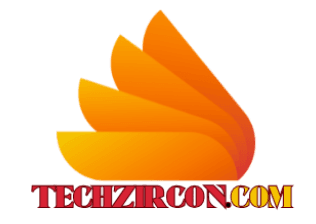From Implementation to Optimization:- The Value of a Salesforce Service Cloud Consultant Salesforce Service Cloud consultant combines deep platform knowledge with change-management skills to tailor Salesforce Service Cloud to an organization’s unique needs.
From scoping requirements to fine-tuning AI-driven automations, consultants ensure every phase—from implementation to continuous optimization—translates into faster resolutions, higher CSAT, and substantial ROI for Salesforce.
Involve Key Stakeholders in the Planning Process
From Implementation to Optimization:- key stakeholders—including executives, IT teams, and frontline agents—during the planning stage ensures alignment on objectives and smooth change management. winklix.com.
Early workshops facilitate mapping current support workflows, defining success metrics (e.g., first-response time, resolution time), and uncovering pain points before configuration begins. Moreover, stakeholder involvement fosters ownership and drives higher user adoption
post-go-live, Whatfix.
Ensure Data Quality and Integration
High-quality, integrated data underpin effective service delivery. Consultants perform thorough data audits—cleaning duplicates, validating fields, and mapping legacy records—to prevent errors and ensure reliable analytics.
They also architect seamless integrations with CRM, ERP, and telephony (CTI) systems, creating a 360° customer view that empowers agents with real-time context and reduces manual entry errors in TTMS.
Train Your Teams and Users
Even the most elegant solution falls short without user proficiency. Consultants design role-based training programs—blending hands-on workshops, Trailhead modules, and quick-reference guides—to accommodate diverse learning preferences and reinforce best practices.
Identifying and empowering “power users” accelerates peer support and embeds institutional knowledge, driving sustained adoption and minimizing support tickets in Synebo.
Monitor and Optimize Performance
Post-launch, ongoing monitoring is critical. Consultants configure custom dashboards and reports in Einstein Analytics to track KPIs, such as case backlog, CSAT trends, and case deflection rates, in real time in Salesforce.
Through regular health checks, they refine Omni-Channel routing, update Einstein Bots, and introduce new automations that deflect up to 50% of cases to self-service channels, reducing agent workload by 30% at SalesforceTTMS.
Maintain a Strong Support System Post-Implementation
A solid support system ensures quick issue resolution and continuous improvement. Consultants establish clear escalation paths, SLAs, and a living Knowledge Base to address common queries efficiently. Whatfix.
Scheduled check-ins with stakeholders capture evolving needs and inform roadmap enhancements, such as integrating Service Cloud Voice or advanced AI use cases, sustaining momentum, and maximizing long-term ROI for Salesforce.
Step-by-Step Guide: From Kickoff to Continuous Improvement
- Discovery & Planning: Conduct stakeholder workshops; define scope and KPIs. winklix.com
- Solution Architecture: Design data models, page layouts, and integration blueprints. TTMS
- Development & Configuration: Build features—Case Management, Omni-Channel, Knowledge Base, and basic Einstein Bots. mirketa –
- Testing & Training: Perform UAT with real scenarios; deliver Trailhead-based training. Synebo
- Go-Live & Hypercare: Monitor KPIs; provide on-site or virtual support to address early issues. Salesforce
- Optimization & Scaling: Conduct quarterly health checks; implement advanced automations and AI features. Salesforce
Anecdote: Transforming Service Operations
A mid-sized insurer faced siloed channels and slow resolutions. By partnering with a Service Cloud consultant, they:
- Involved stakeholders across underwriting, claims, and IT to align on KPIs.
- Cleaned and integrated data from multiple legacy systems, creating a unified customer profile.
- Trained agents on new Omni-Channel console workflows and macros.
- Monitored performance, refining routing rules, and deploying an Einstein Bot for FAQs.
Within four months, average handling time dropped by 60%, first-contact resolution rose to 92%, and CSAT soared above 95%, underscoring the consultant’s pivotal role in Salesforce.
Conclusion
From implementation through optimization, a Salesforce Service Cloud consultant orchestrates every phase—involving stakeholders, ensuring data quality, training teams, monitoring performance, and providing post-implementation support—to drive faster resolutions,
higher customer satisfaction, and substantial ROI. By engaging these experts, organizations transform customer-service operations into a powerful competitive advantage, maximizing their Service Cloud investment.
Frequently Asked Questions
1. What does a Salesforce Service Cloud Consultant do?
A Salesforce Service Cloud Consultant assesses an organization’s customer-service processes, designs tailored Service Cloud solutions, and oversees their implementation and optimization.
They configure core features such as Case Management, Omni-Channel routing, and Knowledge Base, integrate Service Cloud with CRM, ERP, and telephony systems for a unified customer view, and automate workflows using Salesforce Flows and Einstein Bots to enhance agent productivity.
Post-go-live, they build dashboards in Einstein Analytics to monitor KPIs, like first-response time and case backlog, and conduct regular health checks to refine processes and ensure continuous improvement.
Clouds, Salesforce Experts, Salesforce Developers.
2. How much does becoming a certified Service Cloud Consultant in Salesforce cost?
The registration fee for the Salesforce Certified Service Cloud Consultant exam is USD 200, plus any applicable local taxes.
If you need to retake the exam, the retake fee is USD 100. Organizations often invest in official Trailhead learning resources and practice exams, which are free. However, some third-party study guides or bootcamps may incur additional costs ranging from USD 100 to USD 500 for structured training programs. SaaS Guru.
3. How long does it take to implement Salesforce Service Cloud?
Implementation timelines vary by project scope and organizational size:
Small–Medium Businesses (SMBs): Approximately 3–5 weeks for initial setup and basic workflows.
Enterprise: Typically 3–6 months, accounting for complex integrations (ERP, CTI), customizations, data migrations, and comprehensive training.
MVP (Minimal Viable Product): Can be as short as 2 weeks, focusing on core features before iterative enhancements.
These estimates assume dedicated project teams and clear requirements; scope changes or data-quality issues can extend timelines accordingly. ClouditySaaS Guru.
4. What is the passing score for the Service Cloud Consultant exam?
The Salesforce Certified Service Cloud Consultant exam comprises 60 multiple-choice/multiple-select questions (plus five unscored “pilot” questions) with a 105-minute time limit.
The minimum passing score is 67%, meaning you must answer 41 out of the 60 scored questions correctly to pass. This standard is consistent across Salesforce Consultant-level exams to ensure a baseline proficiency in designing and deploying Service Cloud solutions.


